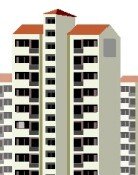Report Tells of 34 Nurses Who Fought for Independence
Report Tells of 34 Nurses Who Fought for Independence
Posted August. 13, 2009 10:17,
A Korean-Chinese graduate student in Seoul has chronicled the efforts of 34 Korean nurses who fought for Korean liberation from Japanese colonial rule.
Kim Ryeo-hwa, 27, recently published a report on the nurses that she compiled over the past two years. Arriving in Korea in 2007, she is going for a Ph.D. in nursing at Ewha Womans University.
Im very happy to have helped publicize that nurses proactively participated in the independence movement, she said. I hope to gather additional reference documents and find and publicize new facts about the nurses.
She received financial support for the study from the Korea Nurses Association. The report categorizes the pro-independence activities of the nurses into communication and relay of confidential documents and collection of military intelligence (Park Ja-hye, Lim Soo-myeong, Park Won-gyeong, Park Hye-gyeong and Tak Myeong-sook); spread of the independence movement to the provinces and hospitals (Kim Hyo-soon, Park In-deok and Lee Do-shin); efforts through the Red Cross (Kim Oh-seon, Kim Tae-bok, Park Ok-shin, Yoon Jin-soo, Lee Jeong-sook and Chae Gye-bok); and public health education and information (Park In-deok, Jeong Jong-myeong and Han Shin-gwang).
Jeong Jong-myeong was imprisoned for delivering documents on the independence movement. She got married at age 17 and had a child, but her husband died two years later. She entered the nursing training center of Yonsei Severance Hospital to support her son.
Most nursing students at the time were from poor households since the profession was considered difficult and dirty because nurses had to wash bloody and pus-tainted bandages.
In 1919, Jeong was caught trying to convey documents on the March 1 Independence Movement from independence fighter Lee Kap-seong, who was disguised as pharmacist at the hospital. The nurse was later tortured.
She quit the hospital due to the incident and became a midwife. Whenever she heard that an independence fighter was arrested, she sent money, clothes and food to the prison he or she was being held.
Jeong even pawned her belongings when she had no money for the supplies, earning the nickname a person like my elder sister or mother from independence fighters.
Han Shin-gwang was called a woman of action for proactively participating in the 1919 movement and the Gwangju Student Movement against Japan. After the 1919 movement erupted when she was 17, she distributed the Korean national flag to everyone she met in her hometown of Jinju.
Han persuaded people to chant the slogan, Long live an independent Korea! She was caught at a young age and imprisoned for two months.
She also joined a campaign to improve the health of mothers and newborns after graduating from a nursing training center at Dongdaemun Gynecological Hospital in 1923. She established the Joseon Nurses Association in the belief that nurses must perform their social responsibilities, and dedicated herself to lecturing on the health of pregnant women and children.
Han served a year in prison for encouraging students to stage pro-independence activities in Seoul when the Gwangju movement erupted in 1928.
Park Ja-hye, the wife of independence fighter Shin Chae-ho, began to work at a gynecological clinic in 1916 after graduating from the Joseon training center. When hospitals received a flurry of injured patients in the wake of March 1st Independence Movement in 1919, she organized a nurses club and persuaded nurses to go on strike.
Nurses even led their own independence movement. After refusing to join a hospital that exclusively served Japanese in 1919, Park entered Yenching University in Beijing (which was later merged into Peking University), where she met her husband the following year. She continued to fight for independence after marriage.
The reports author Kim began gathering and compiling data on the nurses largely because of her great grandfather, who was an independence fighter himself.
I heard about the independence movement from my great grandfather when I was growing up, she said. Having attended schools for ethnic Koreans, I understood the Korean language and alphabet. Since I never learned Korean history, however, I wouldve given up before finishing the project unless I had Korean heritage.
After entering Ewha, she collected data after growing curious over whether any nurses fought for Koreas independence.
isityou@donga.com
Headline News
- Joint investigation headquarters asks Yoon to appear at the investigation office
- KDIC colonel: Cable ties and hoods to control NEC staff were prepared
- Results of real estate development diverged by accessibility to Gangnam
- New budget proposal reflecting Trump’s demand rejected
- Son Heung-min scores winning corner kick







